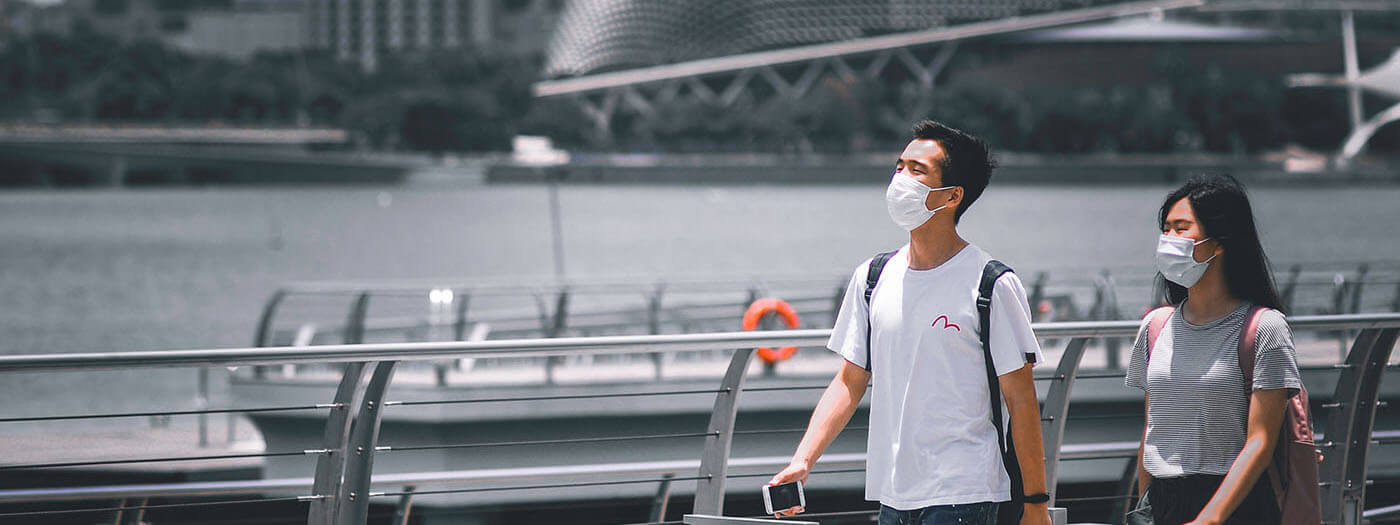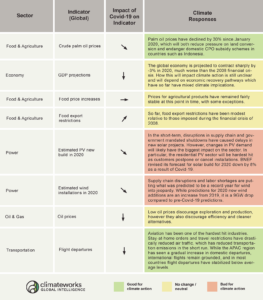

As the world continues to grapple with the unfolding consequences of the Covid-19 pandemic, the focus rightly remains on protecting public health and remedying the social and economic ramifications of physical distancing measures. As second order consequences of the pandemic response, transportation activity and the price of oil have cratered, electricity consumption has decreased, and in some corners a heretical thought is being whispered — that the pandemic might, in fact, have a silver lining: reduced greenhouse gas emissions, and by extension a contribution to climate change mitigation.
Some say this out of real concern for the climate; others push it disingenuously, as part of a narrative that environmentalists wish to impose economic hardships en route to achieving their own ends. However, we are finding that emissions reductions attributable to Covid-19 will not appreciably help in arresting the climate crisis, and the current lockdowns bear no resemblance to the just and sustainable future that the environmental community and climate philanthropy are all working toward.
Potential impacts on long-term deep decarbonization
How much can we actually expect emissions to decline in the short run, and what impacts would this have on long-term temperatures? As the economic fallout has become more pronounced, estimates of carbon emissions in 2020 have been repeatedly revised downward, with recent analyses by Carbon Brief and the International Energy Agency (IEA) respectively estimating emissions reductions of about 5.5% and 8%, relative to 2019.
In past recessions, there was a quick return to the emissions trendline, but even if this recession were to persist for several years, overall emissions reductions would have little impact on long-run temperatures if not sustained by stringent climate policies and persistent behavior changes. This is because today’s temporarily reduced emissions are still being added to centuries-worth of greenhouse gases that have accumulated in the atmosphere; unlike local air pollution, the climate crisis only gets worse when the rate of emissions declines but remains above zero. What matters more is our response to the crisis, particularly the trillions of dollars in stimulus spending committed by governments the world over.
Focus on a sustainable recovery

In the best case scenario, a clean energy transition would be the centerpiece of stimulus spending, as the IEA and others have advocated. In the worst case, stimulus packages will amount to a bailout of fossil fuel industries, unless fiscal stimulus packages are closely aligned to a green agenda, which will likely be seen in only a few instances. Either way, ClimateWorks will be tracking the impacts of the pandemic and their implications for climate action by collating climate-related indicators that have been affected by Covid-19 — from transportation activity to green stimulus plans to air quality levels. The table here contains a subset of these indicators, which we will be monitoring as we consider how climate philanthropy can best promote a sustainable recovery.
Emissions intensities are the key
Using the Carbon Transparency Initiative regional models, developed at ClimateWorks, we are able to separate changes in overall activity (such as the amount of oil consumed or steel produced) from changes in the carbon intensity of those activities (the amount of carbon emitted per unit of oil or steel production). In the long run, we find that deep decarbonization relies far more on reductions in intensity than reductions in activity — it is much easier to imagine a modern society built upon carbon-free electricity than one that consumes no electricity at all. Getting emissions to below net-zero (a requirement for stopping and then reversing climate change) means that activity levels cannot get low enough, so long as those activities are continuing to produce emissions. Reducing the emissions intensity of the economy to zero is a necessity in the long run and temporary reductions in activity levels do not change this imperative.
Prospects for a “just recovery”
While there is no shortage of ideas on how to promote a sustainable response to the coronavirus pandemic, adoption of “just recovery” policies by governments around the world has been lackluster so far. Temporary reductions in emissions are real, but instead of being distracted by enforced reductions in activity levels and energy consumption, we should focus on pushing for ambitious policies that drive emissions intensity toward zero, resulting in long-run deep decarbonization. We need to look beyond behavioral changes (such as remote working and virtual conferences) that endure after the Covid-19 pandemic passes and to strengthening proposed and adopted stimulus bills to set ourselves on a pathway toward achieving our international climate goals and the just and sustainable future that we all are striving for.
For more information on how ClimateWorks is responding to the Covid-19 pandemic, see here.




